Click on images to enlarge
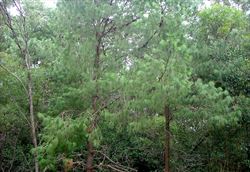
infestation in open woodland near a plantation (Photo: Sheldon Navie)
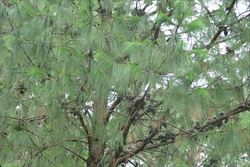
habit (Photo: Sheldon Navie)

rough bark on main trunk (Photo: Sheldon Navie)

branches with long drooping leaves and mature female cones (Photo: Sheldon Navie)

young shoots and clusters of male cones (Photo: Sheldon Navie)
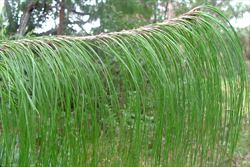
the drooping need-like leaves are borne in groups and their bases are enclosed in a sheath (Photo: Sheldon Navie)
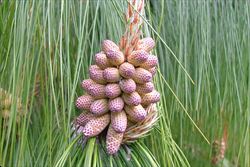
dense cluster of young pinkish-yellow coloured male cones (Photo: Sheldon Navie)
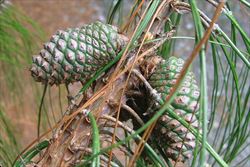
immature female cones (Photo: Sheldon Navie)
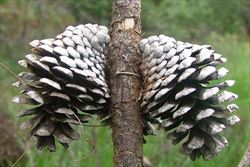
mature female cones are curved downwards (Photo: Sheldon Navie)
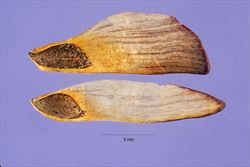
close-up of winged seeds (Photo: Steve Hurst at USDA PLANTS Database)
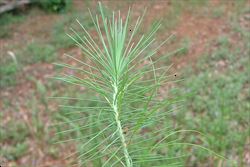
young plant with juvenille leaves (Photo: Sheldon Navie)
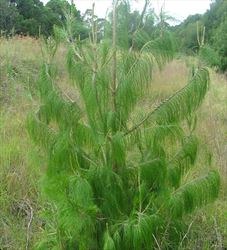
sapling (Photo: Sheldon Navie)
Scientific Name
Pinus patula Schiede ex Schltdl. & Cham.
Family
Pinaceae
Common Names
jelecote pine, Mexican pine, Mexican weeping pine, Mexican yellow pine, patula pine, spreading leaved pine, weeping pine
Origin
Native to Mexico.
Naturalised Distribution
This species is occasionally naturalised in eastern Australia (i.e. in southern Victoria, in some parts of eastern New South Wales and in south-eastern Queensland).
Naturalised in tropical and southern Africa, New Zealand, Madagascar and Hawaii.
Notes
Mexican weeping pine (Pinus patula) is regarded as an emerging environmental weed in some parts of Queensland and New South Wales. It is aslo seen as a potential environmental weed or "sleeper weed" in other parts of Australia.

